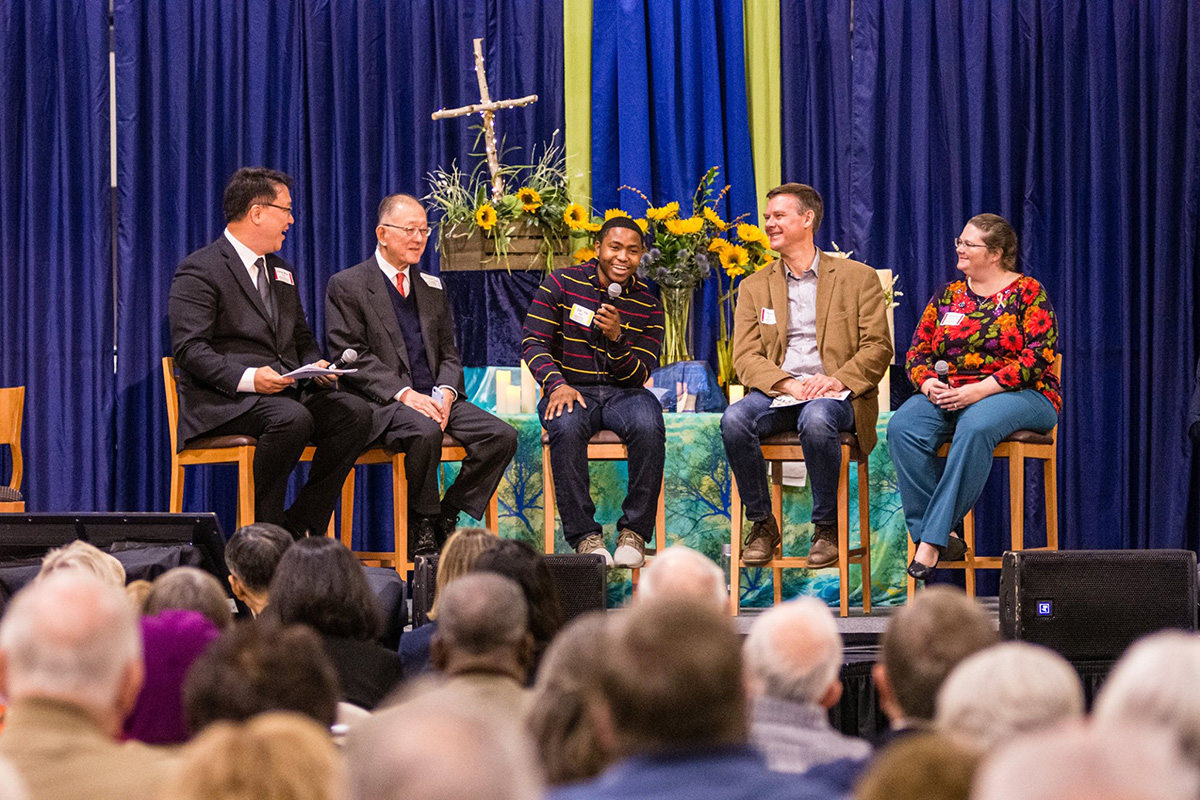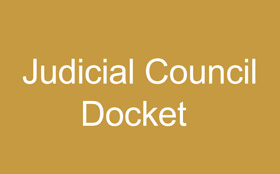Five rulings of law made when New Jersey United Methodists held a special session to discuss their own “way forward” through a denominational divide will be reviewed by the church’s top court when it meets this spring.
Also part of the 14-item docket for the United Methodist Judicial Council is the continuation of an item from the Fall 2019 session regarding a request that the court review the legal impact of a finding of improper voting during General Conference 2019.
The council’s spring meeting will take place April 29-May 2 in Minneapolis, just before General Conference 2020, which meets May 5-15.
Other docket items include rulings from the Michigan, Baltimore-Washington and Mississippi conferences and items from New England and Upper New York postponed from the previous session.
During its Oct. 26 special session, the Greater New Jersey Conference — led by Bishop John Schol and the conference’s “Way Forward” team — voted overwhelmingly to allow its churches to decide how to include and affirm LGBTQ people in every aspect of ministry.
The vote on the 10-point proposal came just eight months after a special General Conference passed the Traditional Plan, affirming the church’s current bans on ordaining LGBTQ clergy and officiating at or hosting same-sex marriage ceremonies and strengthening penalties for violations.
Schol told participants in the special session that he would not forward complaints for trial concerning LGBTQ people seeking ordination or the rights of LGBTQ clergy to marry. And Schol said he won’t forward complaints against pastors who perform same-sex unions. The conference’s Board of Ordained Ministry also had declared it would not consider sexuality or gender as a factor in screening candidates for ordination.
In general, the Judicial Council — required to review all rulings of law made by bishops — will look at whether Greater New Jersey’s Way Forward Plan violates the Book of Discipline, the denomination’s lawbook, or previous Judicial Council decisions and if the declarations made by Schol and the Board of Ordained Ministry do the same.
“Does the Greater New Jersey Conference have power or authority to make a decision for the local churches that violates the laws of The United Methodist Church?” asks one of the questions before the court.
At the Nov. 1 conclusion of its Fall 2019 session, the Judicial Council decided to hold the request submitted by the Council of Bishops on the question of improper voting during General Conference 2019 to the spring meeting. In Decision 1386, the Judicial Council noted that “because of our inability to get the information requested during oral argument” it would be best to reschedule the case.
The bishops brought the issue to the court’s attention on behalf of the Commission on General Conference, which announced in August that its investigation found “credible objective evidence” of four ineligible people casting votes using the credentials of delegates who were not present at last February’s special General Conference. That number was enough to nullify a key vote on how congregations can leave the denomination, the commission said.
Subscribe to our
e-newsletter
In other business, the Judicial Council will review rulings from the Michigan Conference related to LGBTQ issues, including support for statements to consider all candidates for ministry “without regard to their sexual orientation or gender identity” and to include LGBTQ people “in the full life and membership of The United Methodist Church.” The Michigan Conference also submitted a request for a declaratory decision on the legislative power of General Conference related to homosexual unions and same-sex weddings.
Two docket items focus on representation at General Conference. The Baltimore-Washington Conference asked for a declaratory decision on whether a conference can adopt attendance policies for delegates to general and jurisdictional conference. A Mississippi Conference ruling involves the local church membership of a lay person serving as a General Conference delegate.
Reviews of two other rulings by bishops were held over from the fall meeting. In Upper New York, Bishop Mark Webb ruled that it was permissible to express disagreement with General Conference but not to impose “an immediate moratorium” on actions related to LGBTQ clergy and same-gender weddings. The New England ruling involved a resolution setting a procedure for local churches considering disaffiliation from The United Methodist Church.
The deadline to submit briefs or request an oral hearing on docket items is Feb. 18. The deadline to reply to submitted briefs is Feb. 28. Forms for those submissions can be found on the Judicial Council’s website.
Bloom is the assistant news editor for United Methodist News Service and is based in New York.
Follow her at https://twitter.com/umcscribe or contact her at 615-742-5470 or newsdesk@umcom.org. To read more United Methodist news, subscribe to the free daily or weekly digests.
Like what you're reading? Support the ministry of UM News! Your support ensures the latest denominational news, dynamic stories and informative articles will continue to connect our global community. Make a tax-deductible donation at ResourceUMC.org/GiveUMCom.





